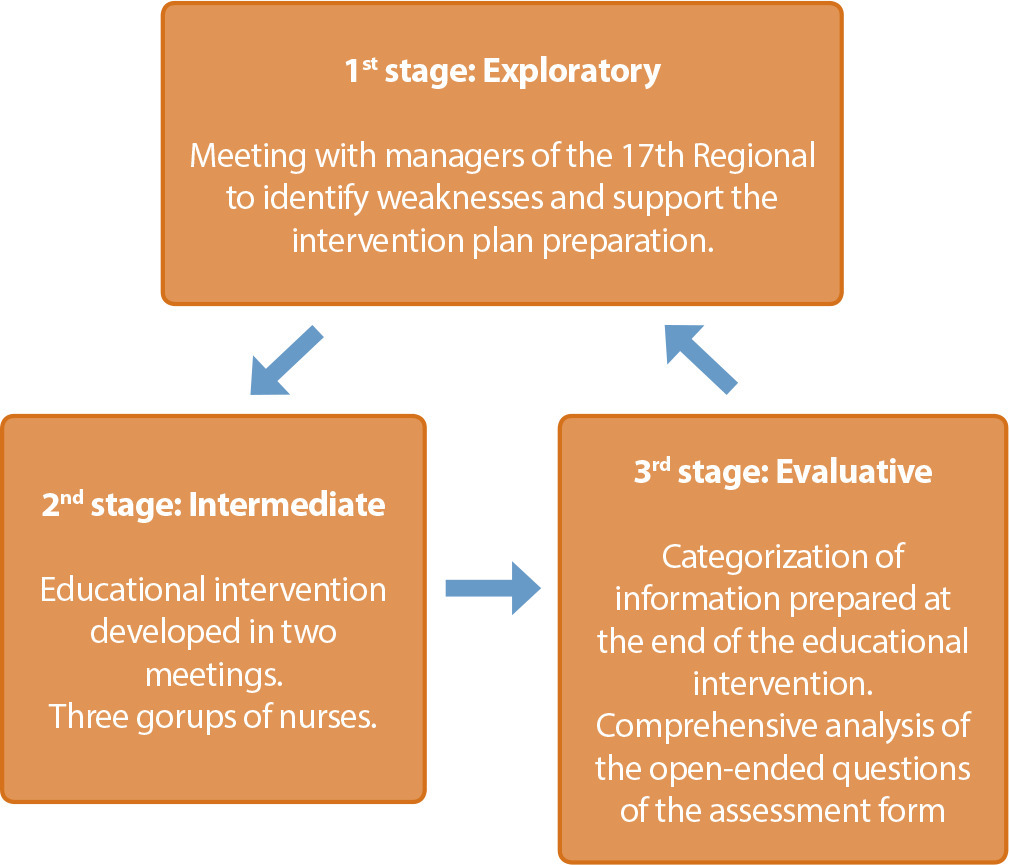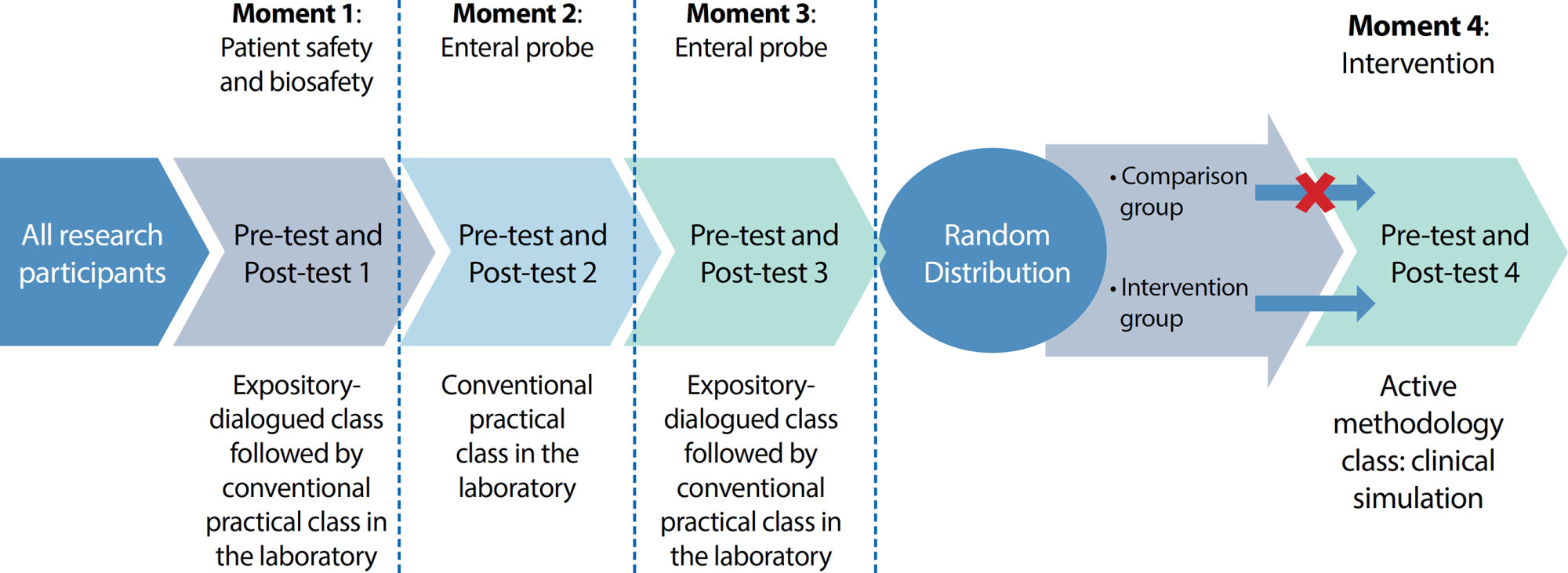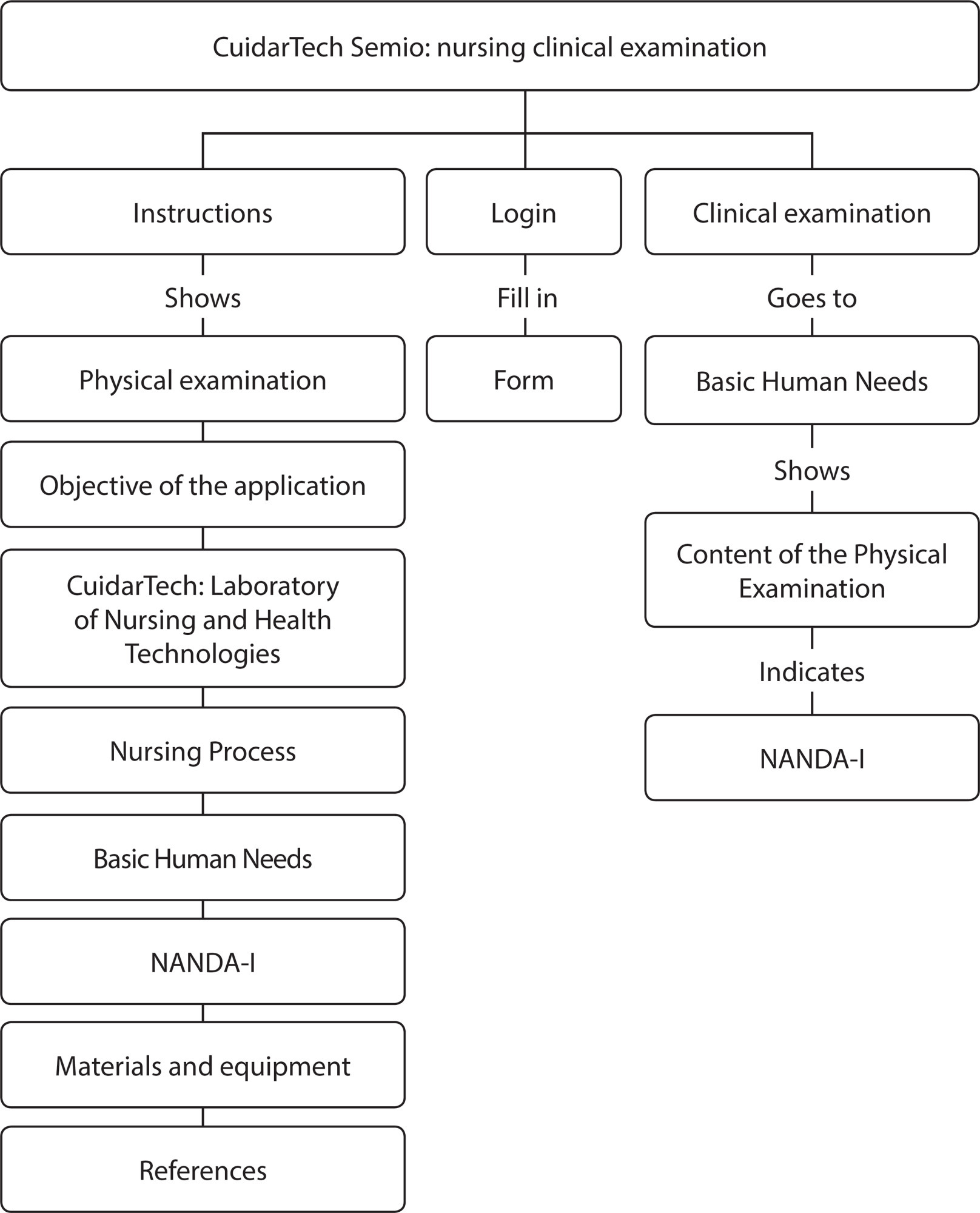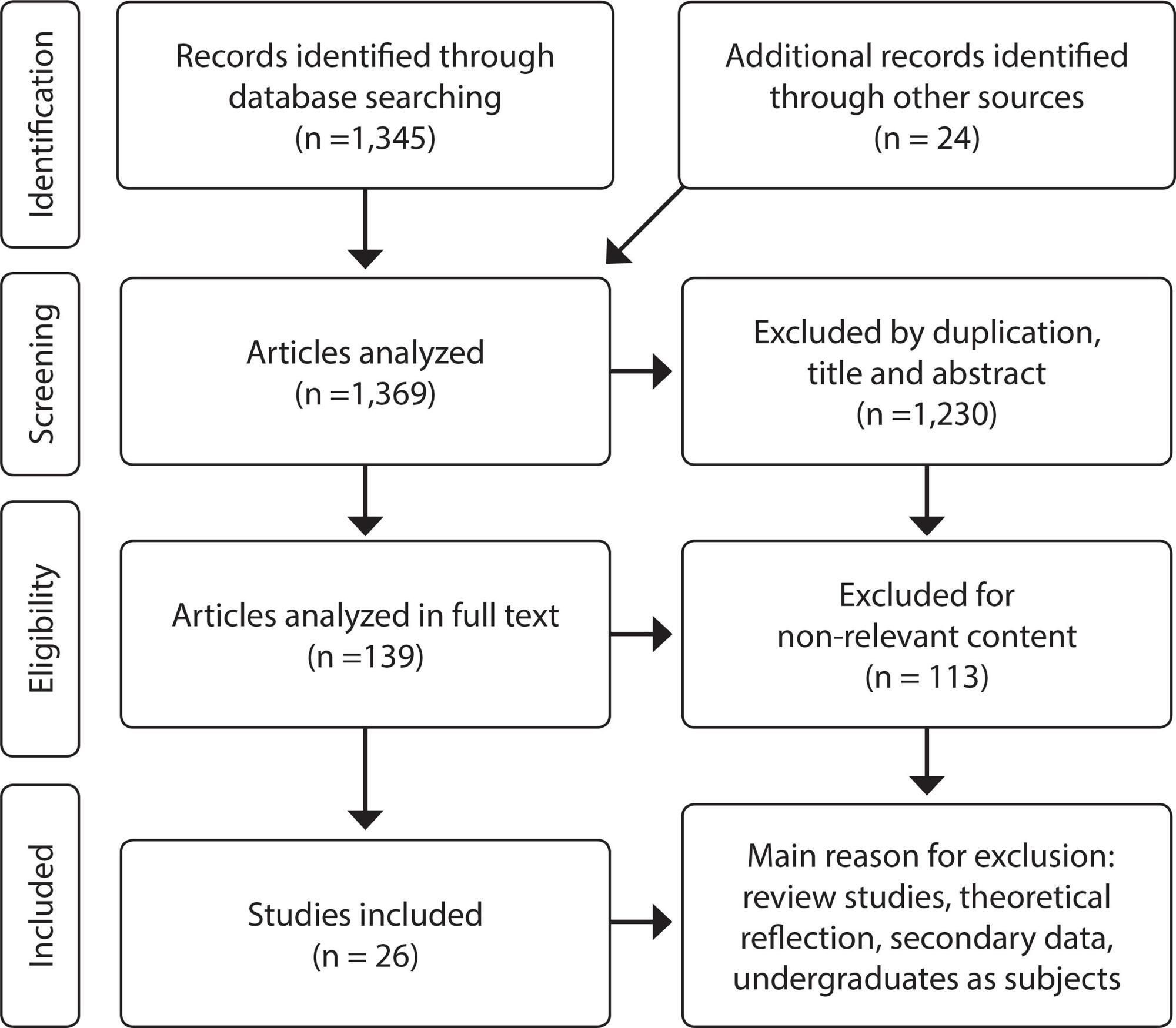-
10-09-2023
Standard Operating Procedure validity on intramuscular vaccine administration in adults: a methodological study
Revista Brasileira de Enfermagem. 2023;76(4):e20220692
Abstract
Standard Operating Procedure validity on intramuscular vaccine administration in adults: a methodological study
Revista Brasileira de Enfermagem. 2023;76(4):e20220692
DOI 10.1590/0034-7167-2022-0692
Views0See moreABSTRACT
Objective:
to validate a Standard Operating Procedure on the intramuscular vaccine administration technique in adults using high frequency vibration associated with cryotherapy.
Methods:
a literature review on intramuscular vaccination practice using a vibration device associated with cryotherapy. Then, a form was created to validate the instrument, detailing the items that were assessed by judges following recommendations in the literature. Judges’ answers were assessed using the Content Validity Index, with items whose index was greater than or equal to 0.80 being validated.
Results:
twenty-five nurses participated in validity, identifying judges’ opinion regarding item relevance, clarity and accuracy. Judges validated the instrument, according to the values that remained between 0.88 and 1.0.
Conclusions:
the instrument developed and validated is a tool capable of guaranteeing safety and standardizing immunization practice in vaccine rooms.
-
ORIGINAL ARTICLE10-09-2023
Translation and validity of the Multidimensional Individual and Interpersonal Resilience Measure
Revista Brasileira de Enfermagem. 2023;76(4):e20220696
Abstract
ORIGINAL ARTICLETranslation and validity of the Multidimensional Individual and Interpersonal Resilience Measure
Revista Brasileira de Enfermagem. 2023;76(4):e20220696
DOI 10.1590/0034-7167-2022-0696
Views0See moreABSTRACT
Objective:
to translate, culturally adapt and validate the Multidimensional Individual and Interpersonal Resilience Measure to Brazilian Portuguese.
Method:
after initial translation, the pre-final version underwent rigorous cultural adaptation procedures. As a result, the final adapted version was submitted to a validity study.
Results:
adaptation procedures provided equivalence between the pre-final and the original versions in semantic, idiomatic, experiential and conceptual terms. A total of 187 older adults were included in the validity study. Exploratory factorial analysis (EFA) generated a model of five factors ((RMSEA = 0.030; TLI = 0.959; X = 151.590 p> 0.05). Final version showed adequate consistency (Cronbach’s α = 0.705) and test-retest reliability (ICC=0.835). No statistically significant correlation was found between resilience and sociodemographic and epidemiological variables assessed in this study.
Conclusion:
EMRII-BR is a valid and reliable instrument for measuring resilience in Brazilian older adults.
-
ORIGINAL ARTICLE10-09-2023
Health care for people with tuberculosis/HIV co-infection from the multidisciplinary team’s perspective
Revista Brasileira de Enfermagem. 2023;76(4):e20220733
Abstract
ORIGINAL ARTICLEHealth care for people with tuberculosis/HIV co-infection from the multidisciplinary team’s perspective
Revista Brasileira de Enfermagem. 2023;76(4):e20220733
DOI 10.1590/0034-7167-2022-0733
Views0See moreABSTRACT
Objective:
to know the multidisciplinary team’s perspective about the health care of people with tuberculosis and human immunodeficiency virus co-infection in relation to treatment.
Methods:
this is a descriptive-exploratory study, with a qualitative approach, carried out in a health care service in São Paulo, from May to June 2019. Semi-structured interviews were conducted with nine professionals from the multidisciplinary team. Data were processed through discourse analysis with the support of webQDA.
Results:
Two empirical categories emerged: Health care interfaces for people with tuberculosis and human immunodeficiency virus co-infection; Barriers and facilitators for health care for people with co-infection.
Final considerations:
the health-disease process in co-infection is mediated by conditions that positively or negatively interfere with treatment compliance. People’s health care goes beyond exclusively clinical assistance and requires the recognition of needs in a broad perspective.

-
ORIGINAL ARTICLE10-09-2023
Independent and combined effects of lifestyle behaviors on adolescent health-related quality of life
Revista Brasileira de Enfermagem. 2023;76(4):e20220780
Abstract
ORIGINAL ARTICLEIndependent and combined effects of lifestyle behaviors on adolescent health-related quality of life
Revista Brasileira de Enfermagem. 2023;76(4):e20220780
DOI 10.1590/0034-7167-2022-0780
Views0See moreABSTRACT
Objective:
To investigate the independent and combined effects of lifestyle behaviors, including physical activity, sedentary behavior, sleep duration and food intake, in the health-related quality of life (HRQoL) of Brazilian adolescents.
Methods:
Cross-sectional school-based study, with the participation of 306 adolescents aged 14 to 18 years. A questionnaire was applied with structured questions to collect lifestyle behaviors data. Perception of the HRQoL was identified using the Kidscreen-27. The study used covariance analysis and linear regression models for statistical analysis.
Results:
Adolescents who reported ≤ 2 hours/day of screen-based sedentary behavior and sleep duration equivalent to 8-10 hours/night presented significantly higher HRQoL. Adolescents who reported joint adherence ≥ 3 healthy lifestyle behaviors demonstrated approximately two [OR=2.12] to three times [OR=3.04] more chance of presenting higher perceptions of HRQoL.
Conclusion:
Although healthy lifestyle behaviors had a positive independent effect on HRQoL, joint adherence to healthy behaviors enhances the cumulative effect.

-
ORIGINAL ARTICLE10-09-2023
Spirituality in the uncertainty of illness: the perspective of oncology patients
Revista Brasileira de Enfermagem. 2023;76(4):e20220712
Abstract
ORIGINAL ARTICLESpirituality in the uncertainty of illness: the perspective of oncology patients
Revista Brasileira de Enfermagem. 2023;76(4):e20220712
DOI 10.1590/0034-7167-2022-0712
Views0See moreABSTRACT
Objective:
To analyze spirituality in the process of illness uncertainty in cancer patients.
Methods:
This is a qualitative study, in which Merle Mishel’s Theory of Uncertainty of Disease was used as a theoretical framework; and as a methodological reference, the stages of Bardin’s Content Analysis. As a technique for obtaining information, a semi-structured interview was used.
Results:
Spirituality in the uncertainty of the disease varies from patient to patient and acts in a unique way. They presented readaptation attitudes in their reports. The presence of spirituality in their lives acted as the main force mechanism to deal with the uncertainty of the disease, and this moment was called by Mishel “probabilistic thinking”.
Conclusion:
Patients demonstrated readaptation attitudes in their reports, and spirituality acted as the main mechanism of strength to deal with uncertainty in the disease

-
ORIGINAL ARTICLE10-09-2023
Glycemic variability and mortality in oncologic intensive care units
Revista Brasileira de Enfermagem. 2023;76(4):e20220812
Abstract
ORIGINAL ARTICLEGlycemic variability and mortality in oncologic intensive care units
Revista Brasileira de Enfermagem. 2023;76(4):e20220812
DOI 10.1590/0034-7167-2022-0812
Views0See moreABSTRACT
Objective:
This study aimed to investigate the association between glycemic variability and mortality in patients admitted to oncologic intensive care units.
Methods:
A retrospective cohort study was conducted using a convenience sample of 30 medical records of patients over 18 years of age of both sexes. Glycemic variability was measured using the standard deviation and general amplitude. Statistical analysis was performed using the receiver operating characteristic (ROC) curve and the area under the curve (AUC). The significance level (α) was set at 5% with a confidence interval (CI) of 95%.
Results:
The study included 14 male patients (46.67%) with a mean age of 60±15 years. A total of 1503 blood glucose samples were collected. The AUC analysis for the standard deviation did not show a statistically significant result (p=.966; 95% CI=[0.283, 0.726]). In contrast, the general amplitude had a statistically significant association with mortality (p=.049; 95% CI=[0.514, 0.916]).
Conclusions:
This study found that glycemic variability measured by the general amplitude was significantly associated with patient mortality in oncologic intensive care units. These findings suggest that monitoring glycemic variability may be an important factor in the management of critically ill patients in oncologic intensive care units.

-
ORIGINAL ARTICLE10-09-2023
Educational intervention in social skills for Primary Care nurses
Revista Brasileira de Enfermagem. 2023;76(4):e20220503
Abstract
ORIGINAL ARTICLEEducational intervention in social skills for Primary Care nurses
Revista Brasileira de Enfermagem. 2023;76(4):e20220503
DOI 10.1590/0034-7167-2022-0503
Views0See moreABSTRACT
Objective:
to assess an educational intervention on social skills for nurses who work in Primary Health Care.
Method:
a qualitative research-intervention study, carried out in the municipalities covered by the 17th Health Regional of Paraná. It was developed in three interrelated stages: exploratory, where meetings were held with the managers to define the groups and logistics for running the course; intermediate, developed in meetings with different groups of nurses, addressing selected topics; assessment, in which the nurses developed a personal plan to improve their social skills.
Results:
participants were 57 nurses who acted as coordinators of Primary Care. They considered the educational intervention in social skills fundamental for positive changes in their professional performance.
Final considerations:
the educational intervention in social skills was assessed as an important strategy to strengthen the development of nurses’ managerial and care skills.

-
ORIGINAL ARTICLE10-09-2023
Intestinal parasitic infections: telephone health literacy with men in areas of poverty in the syndemic
Revista Brasileira de Enfermagem. 2023;76(4):e20220300
Abstract
ORIGINAL ARTICLEIntestinal parasitic infections: telephone health literacy with men in areas of poverty in the syndemic
Revista Brasileira de Enfermagem. 2023;76(4):e20220300
DOI 10.1590/0034-7167-2022-0300
Views0See moreABSTRACT
Objectives:
to assess Popular Health Education practices on intestinal parasites, carried out by telephone contact with men living in urban communities in Rio de Janeiro, Brazil, during the COVID-19 syndemic.
Method:
a quasi-experimental, quantitative and descriptive study, carried out with men aged 20 to 59 years. Pre-test was applied, and participants were divided into two groups: control and experimental. Popular Education in Health practices were carried out with an experimental group, and post-test was applied for both.
Results:
health education practices were significant in the experimental group, with a reduction in incorrect answers. There was an increase in incorrect answers in the control group’s post-test.
Conclusions:
the Brazilian National Policy for Popular Education in Health contributed to qualify men’s health literacy on intestinal parasites. Practice by telephone contact proved to be a powerful strategy for nursing and public policies to access this group and promote health in Primary Health Care.

-
ORIGINAL ARTICLE02-10-2020
Depression among nursing students and its association with academic life
Revista Brasileira de Enfermagem. 2020;73(1):e20180173
Abstract
ORIGINAL ARTICLEDepression among nursing students and its association with academic life
Revista Brasileira de Enfermagem. 2020;73(1):e20180173
DOI 10.1590/0034-7167-2018-0173
Views0See moreABSTRACT
Objective:
To measure the levels of depression among Nursing students from a public institution of higher education and the association with aspects of academic life.
Method:
Analytical and quantitative study with 203 students from a higher education institution that uses active methodologies. We used Beck’s Depression Inventory and the Likert type scale of academic factors.
Results:
We verified that 19.2% had moderate or severe levels of depression. Higher levels of depression were associated with female gender (p=0.003), working more than 40 hours per week (p=0.047), spending more than 90 minutes to reach academic activities (p=0.043) and with 12 academic factors specific to routines of the studied institution.
Conclusion:
The results contribute to managers’ and professors’ reflection and analysis concerning nursing students’ mental health, in addition to indicating in which aspects there is a need to provide greater support to these students.
-
ORIGINAL ARTICLE10-18-2022
Clinical simulation as a Nursing Fundamentals teaching method: a quasi-experimental study
Revista Brasileira de Enfermagem. 2022;75(2):e20201155
Abstract
ORIGINAL ARTICLEClinical simulation as a Nursing Fundamentals teaching method: a quasi-experimental study
Revista Brasileira de Enfermagem. 2022;75(2):e20201155
DOI 10.1590/0034-7167-2020-1155
Views0See moreABSTRACT
Objectives:
to evaluate students’ knowledge gain after the implementation of clinical simulation in Nursing Fundamentals disciplines.
Methods:
a quasi-experimental intervention was carried out with 60 students, distributed in comparison and intervention groups, who underwent traditional teaching and traditional teaching associated with simulated teaching, respectively. Pre-test and post-test instruments were applied to both groups.
Results:
after analyzing the students’ performance through the applied instruments, both groups had a cognitive evolution along with the taught content, however, when compared, the intervention group obtained a higher knowledge gain than the comparison group (p = 0.016), demonstrating progressive and increasing improvement with the use of the methodology.
Conclusions:
simulated teaching significantly helps students in gaining technical-cognitive knowledge. Therefore, it is recommended to adhere to the use of this methodology for teaching Nursing Fundamentals.

-
ORIGINAL ARTICLE12-21-2020
Construction and validation of a mobile application for development of nursing history and diagnosis
Revista Brasileira de Enfermagem. 2020;73:e20190674
Abstract
ORIGINAL ARTICLEConstruction and validation of a mobile application for development of nursing history and diagnosis
Revista Brasileira de Enfermagem. 2020;73:e20190674
DOI 10.1590/0034-7167-2019-0674
Views0See moreABSTRACT
Objectives:
to describe the construction and validation process for a mobile application for development of the nursing history and diagnosis.
Methods:
methodological study conducted in 2018 in three stages: content creation, based on the Basic Human Needs categories and nursing diagnoses; content assessment by nine nursing judges, with calculation of the content validity index; and construction of the application, which included definition of the requirements, a conceptual map, implementation and prototyping options, tests and implementation.
Results:
the application was organized by sections: Grouped Basic Human Needs, Cranial pair tests, Clinical assessment scales and Additional tests. Two section were adjusted according to the judges’ suggestions.
Final Considerations:
it is the first application produced in Brazil based on the Basic Human Need categories, which enables quick access to information, concepts and typical nomenclatures of semiology, recording of clinical data and definition of nursing diagnoses.

-
REVIEW06-11-2021
Mental health interventions implemented in the COVID-19 pandemic: what is the evidence?
Revista Brasileira de Enfermagem. 2021;74:e20200635
Abstract
REVIEWMental health interventions implemented in the COVID-19 pandemic: what is the evidence?
Revista Brasileira de Enfermagem. 2021;74:e20200635
DOI 10.1590/0034-7167-2020-0635
Views0See moreABSTRACT
Objective:
to map the evidence on mental health interventions implemented during the COVID-19 pandemic.
Method:
this scoping review was carried out in the MEDLINE/PubMed, SCOPUS, Web of Science, PsycINFO, and Science Direct databases and in the medRxiv, bioRxiv, and PsyArXiv preprints servers using the descriptors “Covid-19”, “coronavirus infection”, “coronavirus”, “2019-nCoV”, “2019 novel coronavirus disease”, “SARS-CoV-2”, “health personnel”, “general public”, and “mental health”.
Results:
eight articles were selected and categorized into mental health interventions for the population, among which mental health interventions were for people diagnosed with suspicion/confirmed COVID-19 and mental health interventions for health professionals.
Conclusion:
telemonitoring, virtual games and strategies focused on social support and muscle relaxation techniques, characterized as non-pharmacological and low-cost, were shown as interventions, which, since they are effective, need to be encouraged and included in mental health care practices.

-
ORIGINAL ARTICLE10-21-2019
“Waiting for a miracle”: Spirituality/Religiosity in coping with sickle cell disease
Revista Brasileira de Enfermagem. 2019;72(6):1554-1561
Abstract
ORIGINAL ARTICLE“Waiting for a miracle”: Spirituality/Religiosity in coping with sickle cell disease
Revista Brasileira de Enfermagem. 2019;72(6):1554-1561
DOI 10.1590/0034-7167-2018-0635
Views0See moreABSTRACT
Objective:
To understand spirituality/religiosity as experienced by people with sickle cell disease, and its influence on coping with the disease.
Method:
A qualitative, descriptive, and exploratory study conducted in the State of Bahia. Twenty-nine respondents participated in semi-structured interviews. Content analysis was used to analyze the empirical material.
Results:
Individuals with sickle cell disease experience spirituality/religiosity motivated by their hope for a miracle, and fear of death; among their rites are: reading religious materials, individual and group prayer, and attendance at worship services. The effects on their health include: comfort by means of coping by comparing two evils, anxiety relief, social support, and lifestyle changes; however, spirituality/religiosity may be impaired.
Final considerations:
This study demonstrates the need to qualify health professionals to address spiritual issues of these individuals during illness, with the aims of diagnosing suffering and anguish, and providing care, comfort and strengthening of the spiritual bonds of these individuals.
-
ORIGINAL ARTICLE10-21-2019
Caring ability, burden, stress and coping of family caregivers of people in cancer treatment
Revista Brasileira de Enfermagem. 2019;72(6):1541-1546
Abstract
ORIGINAL ARTICLECaring ability, burden, stress and coping of family caregivers of people in cancer treatment
Revista Brasileira de Enfermagem. 2019;72(6):1541-1546
DOI 10.1590/0034-7167-2018-0605
Views0See moreABSTRACT
Objective:
To analyze the association between the caring ability and the burden, stress and coping of family caregivers of people in cancer treatment.
Method:
A cross-sectional study with 132 family caregivers. The following instruments were applied: a characterization instrument, the Caring Ability Inventory, the Zarit Burden Interview, the Perceived Stress Scale, and the Brief COPE. The Spearman Correlation was used with significance ≤5%.
Results:
There were significant and positive correlations between total caring ability and: burden – interpersonal relationship (p=0.03); stress (p=0.02) and maladaptive coping (p=0.00); and inversely proportional correlations with problem-focused coping (p=0.03). The courage had inversely proportional correlation with: self-efficacy (p=0.03), interpersonal relationship (p=0.00), stress (p=0.04) and maladaptive coping (p=0.00). The knowledge had significant and positive correlation with problem-focused coping (p=0.00), adaptive coping (p=0.01), and inverse correlation with stress (p=0.02).
Conclusion:
The level of caring ability correlates with levels of stress and burden, and with the type of coping strategy used by family caregivers.
-
07-16-2021
Sleep quality and its association with menopausal and climacteric symptoms
Revista Brasileira de Enfermagem. 2021;74:e20201150
Abstract
Sleep quality and its association with menopausal and climacteric symptoms
Revista Brasileira de Enfermagem. 2021;74:e20201150
DOI 10.1590/0034-7167-2020-1150
Views0See moreABSTRACT
Objective:
to assess sleep quality in menopausal women and its association with symptoms related to this period.
Method:
this is a cross-sectional, analytical and correlational study. Sleep was assessed using the Pittsburgh Sleep Quality Index; and climacteric symptoms, according to the Menopause Rating Scale. To compare the total score and each Menopause Rating Scale domain with the PSQI classification, the Mann-Whitney U non-parametric test was used. P<0.05 was considered significant.
Results:
261 women (67.8%) were classified as bad sleepers. There was a positive and significant correlation between the sleep scale scores and the total menopause score and its domains. Women categorized as poor sleepers had worse scores on the menopause symptom scale.
Conclusion:
women with worse sleep quality revealed greater severity of symptoms related to menopause.
-
REVIEW07-06-2020
Patient safety challenges in primary health care: a scoping review
Revista Brasileira de Enfermagem. 2020;73(5):e20190209
Abstract
REVIEWPatient safety challenges in primary health care: a scoping review
Revista Brasileira de Enfermagem. 2020;73(5):e20190209
DOI 10.1590/0034-7167-2019-0209
Views1See moreABSTRACT
Objectives:
to identify the patient safety challenges described by health professionals in Primary Health Care.
Methods:
a scoping review was conducted on the LILACS, MEDLINE, IBECS, BDENF, and CINAHL databases, and on the Cochrane, SciELO, Pubmed, and Web of Science libraries in January 2019. Original articles on patient safety in the context of Primary Health Care by health professionals were included.
Results:
the review included 26 studies published between 2002 and 2019. Four categories resulted from the analysis: challenges of health professionals, administration challenges of health services, challenges with the patient and family, and the potential enhancing resources for patient safety.
Conclusions:
patient safety challenges for Primary Care professionals are multiple and complex. This study provides insight into resources to improve patient safety for health care professionals, patients, administrators, policy makers, educators, and researchers.

Search
Search in:
Nuvem de Tags
Adolescente (85) Atenção Primária à Saúde (239) COVID-19 (91) Criança (91) Cuidados de Enfermagem (269) Educação em Enfermagem (151) Educação em Saúde (139) Enfermagem (930) Enfermagem Pediátrica (86) Estudantes de Enfermagem (77) Estudos de Validação (131) Família (87) Idoso (208) Promoção da Saúde (99) Qualidade de Vida (104) Saúde do Trabalhador (86) Saúde Mental (145) Saúde Pública (82) Segurança do Paciente (150) Tecnologia Educacional (100)



